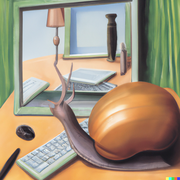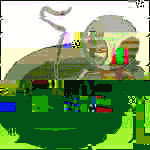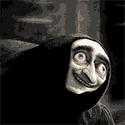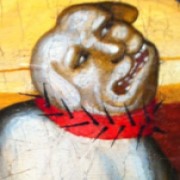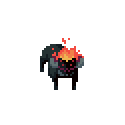|
Fat Jesus posted:
That's gross, but I am eagerly waiting the Next Top Model episode where Tyra challenges the girls to look sexy and smize toochingly while she spits all over them. It's less disgusting than the "slop around in a giant horiatiki under the loving sun for hours" photoshoot. (Yes, I know Tyra's not doing it anymore, but I can dream.)
|
|
|
|

|
| # ? Jun 5, 2024 22:44 |
|
Ceciltron posted:These dudes have the worst haircuts. 1. The Buzz cut. 2. The Bowl cut. 3. The Pompadour. 4. The Undercut. 5. The Undercut Pompadour. 6. The Undercut Bowl cut. 7. *No Entry Listed* EDIT: I forgot the Flat Top Haier fucked around with this message at 04:43 on Jun 12, 2017 |
|
|
|
https://twitter.com/hancocktom/status/874088510529036289
|
|
|
|
oh my god this is a new level of petty insecurity
|
|
|
|
http://ahtribune.com/economy/1710-china-poverty-us-war.htmlquote:According to Xinhua news agency, China has made great strides in reducing the number of people living in poverty. Between the years 2013 to 2016, 55.64 million people living in rural areas were lifted out of poverty. Combined poverty relief funds from central and provisional sources reached over 100 billion yuan for the first time in history. As of 2016, 43.5 million people still lived below the nation's poverty line. However, with nearly 1.4 billion people, China's poverty rate is a far cry from numbers in the US. Reddit posted to the rescue: https://www.reddit.com/r/TrueReddit/comments/6gkwlw/as_of_2016_435_million_chinese_still_lived_below/ quote:This article's failure to even note explicitly that each country defines its own poverty line, much less tell us where each draws the line and give even a superficial analysis of how those lines compare, severely devalues the cited statistics. I honestly don't know where china's poverty line is compared to the US, but the article lacks the required information to support its message. This is equivalent to comparing two teens behavior by how many times they've been grounded. Without knowing under what circumstances each will be grounded, the information is pretty meaningless. Haier fucked around with this message at 04:52 on Jun 12, 2017 |
|
|
|
Fojar38 posted:oh my god Why can't they riot after a victory like the unnamed civilised countries.
|
|
|
|
I don't know who that guy is, but his profile photo is LOL 
|
|
|
|
oh my god
|
|
|
|
better make a monument, it'll last longer
|
|
|
|
duckfarts posted:better make a monument, it'll last longer does this also work for having sex
|
|
|
|

|
|
|
|
lololloll
|
|
|
|
this is the most insecure thing anyone has ever done in the entirety of human history
|
|
|
|
they must be really bad at football
|
|
|
|
Get ready for the incoming tidal wave of hurt feelings tomorrow night when China is officially eliminated from World Cup qualifying. Because they need an outright win in a neutral site game against Syria to even mathematically stay alive. A team from a war torn hellhole with less than 20 million people.....that's already beaten them once. On Chinese soil.  Fat Jesus posted:they must be really bad at football Porfiriato fucked around with this message at 06:25 on Jun 12, 2017 |
|
|
|
ahahahahaahahahaahhaahahahahahahaabhahahaha
|
|
|
|
Ceciltron posted:These dudes have the worst haircuts. Whenever I see a Chinese guy here in Canada with a nice haircut it means one of two things. 1. He's Canadian born. 2. He's actually Japanese. Jesus loving Christ! This is the single most sad/pathetic thing I have ever seen (and I on occasion forget to turn my monitor on). Blistex fucked around with this message at 07:13 on Jun 12, 2017 |
|
|
|
lmfao
|
|
|
|
Was that the legendary winning team? I'm the guy on the left btw.
|
|
|
|
I am so very tempted to post this in D&D to watch the tankie defend it
|
|
|
|
WarpedNaba posted:I am so very tempted to post this in D&D to watch the tankie defend it 
|
|
|
|
THE pass back to the goalkeeper seemed routine for Qingdao Hailifeng FC in its match against Sichuan FC in September 2009, even if the ball was struck a little too hard and the keeper only just managed to stop it running past him and into the net. Qingdao was safely ahead 3-0 with two minutes left in a meaningless match in China's second division. What could be amiss? Then a Qingdao assistant coach gestured for the keeper to come forward from the penalty area. Another Qingdao player promptly chipped the ball over him and towards the net, missing an own goal by inches. The final whistle blew soon afterwards. Qingdao's owner Du Yunqi was irate—at his team's utter incompetence. As he would later admit to investigators, he had just lost a bet that there would be a total of four goals scored in the game. His humiliated assistant coach said on national television, “Afterward the boss was angry and scolded me, saying I bungled things and couldn't even fix a match.” The hapless case of “chip-shot gate”, as the Qingdao game came to be known, is just one low point in aeons of Chinese footballing ineptitude. The only time China qualified for the World Cup finals, in 2002, its side failed to score in any of its three matches; the team has never won a game at the Olympics. And Chinese players are sometimes too incompetent not only to win matches, but also to rig them. In a country so proud of its global stature, football is a painful national joke. Perhaps because Chinese fans love the sport madly and want desperately for their nation to succeed at it, football is the common reference point by which people understand and measure failure. When, in 2008, milk powder from the Chinese company Sanlu was found to have been tainted with melamine, causing a national scandal, the joke was: “Sanlu milk, the exclusive milk of the Chinese national football team!” Everyone is free to take aim, and publicly. When China was dispatched 2-0 by Belgium in the 2008 Olympics in Beijing (pictured above), a presenter on national CCTV said: “The Chinese football team decided to get out quickly, so as not to affect the people's mood while they watch the Olympics.” Chinese fans chanted for the ouster of the head of China's Football Association, Xie Yalong. The authorities sacked Mr Xie shortly after the games. All this hints at something rather unique and powerful about the place of football in Chinese society. It is, like all organised sport in China, ultimately the domain of the government; so, according to the Communist Party's normal methods, senior football officials should be provided at least some protection from scrutiny. In general the secretive state machinery of sport is shielded from public inspection, as it manufactures medal-winning Olympic athletes in dozens of disciplines. Chinese football, though, is so flagrantly and undeniably terrible and corrupt that all potshots are allowed: at officials, referees, owners and players—even, implicitly, at the heart of the communist system itself. Solving the riddle of why Chinese football is so awful becomes, then, a subversive inquiry. It involves unravelling much of what might be wrong with China and its politics. Every Chinese citizen who cares about football participates in this subversion, each with some theory—blaming the schools, the scarcity of pitches, the state's emphasis on individual over team sport, its ruthless treatment of athletes, the one-child policy, bribery and the corrosive influence of gambling. Most lead back to the same conclusion: the root cause is the system. A recent crackdown on football corruption offers little solace; it simply mirrors the pyrrhic campaigns against official corruption elsewhere in China. A mid-level functionary in China's state security apparatus puts it candidly: “You know all those problems with society that you like to blame on China's political system? Well it really is like that with football.” Three little wishes China cherishes its many inventions, real and purported. It recently laid official claim to creating Mongolian throat singing (much to Mongolia's consternation). With the blessing of the international football body FIFA, China also claims the world's earliest recorded mention of a sport similar to football, during the Han dynasty in the 2nd century BC. A version of the game cuju, or “kick ball”, involved a single, elevated net and two sides of 12 men. In later centuries a version of the sport prevailed that favoured individual over team skill. China's rulers took an interest; one Ming-era painting depicts the Xuande Emperor watching his subjects kick the ball around at court. However, by the time football was indigenously innovated in England in the 19th century, cuju and its variants had all but disappeared. Football was then introduced to modern China as a foreign invention—but the young nationalists who would later lead the nation still took to it. In his early 20s Mao Zedong played keeper at a teachers' college in his native Hunan Province. Deng Xiaoping spent precious francs to watch football at the 1924 Olympics in Paris, where he was studying. After he became one of China's most powerful leaders, Deng, still a football fanatic, paid a visit to the national team, saying that he hoped they would become an excellent side “as soon as possible”. That was in 1952. Four years later, after the People's Liberation Army (PLA) football team lost to a Yugoslav youth team, Mao met the Yugoslav side and (according to the PLA Daily) said, “We lost to you now and perhaps will keep losing for 12 years. But it would be very good to win in the 13th year.” By 1969 Chinese football was instead in a shambles, amid the chaos of the Cultural Revolution. This July, undeterred by the lack of progress in the intervening decades, Vice-President Xi Jinping, China's presumed next leader and also a football fan, added his own “three wishes”: first, qualify for another World Cup; second, host a World Cup; finally, win a World Cup. Wisely, Mr Xi did not set any deadlines. So whatever ails Chinese football, it is not a lack of passion from the country's leaders. If anything, the opposite may be the problem. China's Party-controlled, top-down approach to sport has yielded some magnificent results in individual sports, helping China win more Olympic gold medals in Beijing in 2008 than any other country. But this “Soviet model” has proven catastrophically unsuitable for assembling a team of 11 football players, much less a nation of them. The first problem is the method of identifying young talent. The sport system selects children with particular attributes, such as long limbs, which could pay off in athletics, rowing, swimming, diving or gymnastics. These youngsters are the genetic wheat. But football's legends can emerge from the seeming chaff of human physiques: think of stocky Diego Maradona, perhaps the greatest ever player, or his Argentine successor, the tiny genius Lionel Messi. Then there is the matter of gold medals and opportunity costs. China pursues gold by funnelling athletes into obscure individual sports that can reap multiple medals in competitions. Football can only yield one medal or World Cup (two, counting the women: Chinese women have fared much better against a less-developed international field). But the contradictions and weaknesses of Chinese capitalism have also played a part in the country's footballing ignominy. In the early 1990s, with economic reforms taking hold, China slowly allowed some of its state-run teams to act more like commercial ventures, eventually establishing a professional league of clubs with corporate sponsorships, investments and higher salaries. The pay for players was still quite low in comparison with Europe, but big domestic stars began earning hundreds of thousands of dollars a year, a fortune at the time. The “professional” football era began in 1994, but as with any other organised activity in China, the state retained control. In the event, adding heaps of money to an unaccountable bureaucracy made matters worse. State-owned enterprises, seeking glory on the pitch, lavished government money on the teams they sponsored. Private corporate investors followed suit, and cut-throat competition dramatically raised star-player salaries. A similar pay spiral has afflicted other countries' leagues, too; but, in China, some clubs with less wealthy backers found distinctive and creative ways to survive. Investors would contrive to fix games as favours to the local officials who nominally controlled the clubs (these types of matches are called “favour”, “relationship” or “tacit” matches, and are not viewed negatively by many within the game). Gambling syndicates, including the triads, began exerting influence over investors, referees, coaches and players. A spoils system evolved, and everyone took their cuts. Blowing the golden whistle By the end of the 1990s, it was clear to some insiders that few people in football cared about the quality or integrity of the game. One of the pioneer investors, Wang Jianlin of the Dalian Wanda Group, a property conglomerate, gave up his company's sponsorship of the team in the north-eastern city of Dalian in 1999-2000—explaining years later that he did so in part because of the sport's infiltration by gambling interests. Geely, a carmaker, withdrew its support of a club in the southern city of Guangzhou in 2001, just eight months after agreeing to invest. “I was shocked,” Geely's chief, Li Shufu, told the media. “For a match, bribes of one million, two million yuan [$120,000-240,000] were offered, and not a single football official or referee ever got caught.” Almost no one got caught because, in proper Communist fashion, an organisation that was deeply involved in fixing matches, the Chinese Football Association, was the same authority charged, in 2001, with investigating and punishing misconduct. A whitewash was the outcome, not coincidentally just months before China's first World Cup finals in 2002. After China's ignominious exit from the competition, things got worse. Corporate sponsorships and investments declined, hitting salaries and making players yet more susceptible to gambling syndicates. At the same time, with the Chinese economy flourishing, the volume of betting rose dramatically. Finally, in 2007, an investigation of match-fixing in Singapore followed a trail back to Chinese ringleaders. Singapore's authorities tipped off police in north-eastern China, who uncovered match-fixing irregularities there, ultimately forcing, in 2009-10, a second, more severe reckoning for Chinese football. (Likewise, probes into financial crimes in Hong Kong have occasionally ensnared mainland officials who might otherwise have escaped punishment.) This time some 20 people, including a referee previously considered the game's most honest—and known as the “golden whistle” for his incorruptibility—were caught in the crackdown. As officials were detained, a parade of tearful confessions and recriminations played out on national television. Huang Junjie, a referee and one of those in tears, explained that he had once refused a bribe from a club to fix a match only because a leading football association official had already asked him to rig it. Mr Huang gave the public an idea of match-rigging lingo as well: when an official texted him to provide “even-handed justice”, it meant he should favour a visiting team over the home side. Russia 11, China 0 Those caught gave damning justifications, candid in a way that officials in other corruption scandals are typically not allowed to be. “In the general environment of Chinese football at that time, it felt like if one doesn't do it, one loses out,” said Yang Xu in televised comments: “one just seems like a fool.” An executive of Guangzhou Pharmaceutical FC, Mr Yang and his club had agreed to pay 200,000 yuan to another club to throw a game in 2006, so Guangzhou could get promoted to the Chinese Super League. The rot of corruption went to the top: Nan Yong, then boss of the Chinese Football Association. Mr Nan reportedly confessed that players could buy spots on the national team for 100,000 yuan—though that was hardly a shock. Officials have long pressured national coaches to select or field certain players. In one recent stretch of about two years, more than 100 players were named to the national squad, a suspiciously high number and roughly double the usual figure. If even the most prized honours have become sellable commodities or patronage gifts, can Chinese football hope to have any heroes? Mao's long wait Some rather unlikely candidates have stepped forward to be the saviours of Chinese football: property developers. In the hierarchy of cartoon villains in Chinese society, developers are among the most reviled, alongside the corrupt officials some allegedly cut deals with to take people's land. But developers do have cash. The Evergrande Real Estate Group, which is controlled by billionaire and Communist Party member Xu Jiayin, and which acquired the disgraced Guangzhou Pharmaceutical club in 2010, is spending money like Real Madrid. Evergrande pays generous salaries and victory bonuses, reducing players' incentives to fix matches, and is building a huge football school. After 11 years away from the sport, Mr Wang of Wanda (also a party member) has taken on a three-year, 195-million yuan sponsorship of the Chinese Super League—reportedly with the encouragement of a member of China's Politburo, Liu Yandong. These days the owners of 13 of the 16 clubs in the Chinese Super League are either developers or have big property interests. Some have reportedly received cheaper land from local administrations in exchange for their support. Several intend to build more football pitches on it. Will children come out to play, though? Unsurprisingly, perhaps, Chinese children are not queuing up to be football stars. Perhaps above all other factors, this is why hopes for the future of football are dim. From 1990 to 2000 there were more than 600,000 teenagers in China playing organised football, according to official counts of registered players; from 2000 to 2005 that number dropped to an average of 180,000; today (with statistics kept differently) Chinese football officials estimate the number of teenagers playing some form of organised football to be little more than 100,000. Another grim indicator was the 11-0 embarrassment of a team from Beijing's Ditan Primary School at the nimble feet of some diminutive Russian children from Irkutsk in Siberia. The Siberian youngsters won five of six friendly matches in a late October visit to Beijing (drawing the sixth), prompting a round of self-flagellation in the Chinese media and online postings explaining how youth football had arrived at this sorry state. However keen they are to watch the game, years of scandal and failure have made parents sceptical about encouraging their children to play it. They worry that the football world is dirty and will corrupt their offspring. In any case, most don't want their children—especially only children—to waste their time on sport. The education system is geared toward standardised tests, requiring hours of after-school work, which are considered by many to be the lone path to upward mobility. When children do seek a diversion in sport, many find it on the basketball court. America's NBA, with the help of Yao Ming, one of its stars until his recent retirement, has been marketed much more aggressively in China than have the European football leagues. Basketball also requires a much smaller patch of dirt to play on, and land is a scarce commodity (and so hugely profitable). The few pitches that are being set aside by developers will help, but thousands more are needed. Still, if the resilient fans are any indication, hope is not entirely lost. Millions watch the Chinese Super League's matches on television, which often draw better ratings than basketball in the regions where they are broadcast (reportedly embarrassed by the fecklessness in football, national CCTV stopped airing league games in 2008). Tens of thousands fill big-city stadiums to see their countrymen play badly. Today's game is described by insiders as cleaner than it has been since the professional era began—the logical but perhaps fleeting dividend of any high-profile corruption crackdown. There are still fans in the stands chanting “hei shao” or “black whistle”, and sometimes, as in the case of the chip shot in the botched Qingdao fix, “da jiaqiu” (“playing fake ball”). Connections and relationships continue to rule. Evergrande's South Korean manager Lee Jang-soo, the longest-serving foreign coach in Chinese football, says that Chinese players don't put in the same effort as footballers in the world's leading leagues: “Perhaps all they think of is to establish good relationships with their superiors,” he said. “Most clubs are like this. It's mainly about connections, not hard work.” The best players at Evergrande, the nation's top club, are mostly foreigners earning millions of dollars a year. After, arguably, more than 2,000 years, China still awaits its first home-grown football star. Spectacularly able though it is to overcome its problems in other kinds of competition, in football, at least, China's wait for glory looks set to be a long one. http://www.economist.com/node/21541716
|
|
|
|
Anything happens to me, I blame you.
|
|
|
|
Sometimes I see Chinese football on TV and it's at about the level of games we played back in secondary school. Amateur games are like if someone has given a bunch of fat guys who can't run 10 metres without collapsing and who have never heard of football a piece of paper with the rules written on in a language they don't speak and told them to go play.
|
|
|
|
I don't want to read that story, but is the "after 2000 years thing" because somewhere in there Chinese said they invented football 2000 years ago?
|
|
|
|
Haier posted:I don't want to read that story, but is the "after 2000 years thing" because somewhere in there Chinese said they invented football 2000 years ago? I believe that if you look up football on wikipedia there is basically an old chinese painting showing some guys kicking a ball around, so naturally they invented the rules of association football 4000 years ago.
|
|
|
|
The junior high school I occasionally work at was normal last year. I went back to teach a few classes after not having been there for a year and the whole place has been redone in a soccer theme. I'm talking those basket balls (not basketballs) embedded in walls, the entire first floor has been tiled with pictures of soccer players, Astroturf on every surface, and a large sculpture of a soccer ball exploding or something. Meanwhile, half the classrooms have the same broken smartboards and virus-ridden PCs as last year. But hey, I bet Korea feels super lame now!
|
|
|
|
I was at Walmart, which definitely has less ugly people than Walmart back in the US. I was loading up my items on the counter and some redneck woman comes up behind me and notices there is a 2cm space left between my stuff, the person in front of me's stuff, and air, so she starts chucking her stuff directly on top of mine. I hadn't even finished putting my things up, so I did what I usually do with rednecks and slapped her stuff away. I didn't realize it was that hollow fried bread and it went flying off onto the floor. The bag wasn't sealed so it rolled out and got dirty. She immediately starts complaining and making a fuss and pointing, and so I said "Hey, chill out, LADY." She immediately shut up when she realized I wasn't Chinese. She picked bread up off the floor, examined it, and then tried to save face by putting it on the counter without the bag, like she was still going to buy it. She stared at it while I was moving along, and then said "BU YAO!!!!" and took it off. Some other redneck immediately shoved past her and she faded away.
|
|
|
|
u lost breadface, bitch!!!!
|
|
|
|
they invented kicking 5000 years ago before that no one knew how to kick things
|
|
|
|
http://www.asiaone.com/health/surgeons-save-constipated-mans-life-removing-13kg-faecesquote:Zhou told doctors that he had been suffering from constipation since he was born. He took laxatives regularly but they only helped to alleviate his discomfort. A photo is in the link. LOL at the typical Chinese parents. I bet the advice was "drink hot water, don't be near a fan or air conditioner, and it will go away just fine."
|
|
|
|
Haier posted:http://www.asiaone.com/health/surgeons-save-constipated-mans-life-removing-13kg-faeces The comments... Stan Chiam posted:Warren Chik if he bring back and cook it, it will be the best kuay chap with big chewy intestine, yummy Not seriously suggesting to eat it, but it's china, so who knows.
|
|
|
|
Haier posted:http://www.asiaone.com/health/surgeons-save-constipated-mans-life-removing-13kg-faeces You missed the part where there is a real ailment called MEGACOLON
|
|
|
|
GoutPatrol posted:You missed the part where there is a real ailment called MEGACOLON
|
|
|
|
>Be me, bumbling around before the typhoon arrives. >See some random place selling cream filled donuts for cheap. >"gently caress YEAH" >My reaction is based off of the bakery near me that sells amazing cream donuts, so I expect them all to taste good. >Buy a box. >Get home, sit down, open up the box and take a bite. >D....D.......Durian cream......donut. >Angrily throw the donut against the wall. >Look at the package, which also has English on it. >No mention of Durian. >Even more angrily eat the whole thing. I loving hate durian.
|
|
|
|
Proof that TCM is full of poo poo. Also, I've realized that the panda is the perfect spirit animal for China: https://www.youtube.com/watch?v=I-ovzUNno7g
|
|
|
|
gently caress me durian is gross. I cannot imagine the utter betrayal that a durian custard donut would wreak on my senses.
|
|
|
|
Nice mix of juicy facts/figures and a little bit of China hype, also ties into the foodchat from a page or two ago. There are some nice charts with stats in the link. https://www.bloomberg.com/graphics/2017-feeding-china/ Farming the World: China’s Epic Race to Avoid a Food Crisis By Bloomberg News May 22, 2017 China’s 1.4 billion people are building up an appetite that is changing the way the world grows and sells food. The Chinese diet is becoming more like that of the average American, forcing companies to scour the planet for everything from bacon to bananas. But China’s efforts to buy or lease agricultural land in developing nations show that building farms and ranches abroad won’t be enough. Ballooning populations in Asia, Africa and South America will add another 2 billion people within a generation and they too will need more food. That leaves China with a stark ultimatum: If it is to have enough affordable food for its population in the second half of this century, it will need to make sure the world grows food for 9 billion people. Its answer is technology. China’s agriculture industry, from the tiny rice plots tended by 70-year-old grandfathers to the giant companies that are beginning to challenge global players like Nestle SA and Danone SA, is undergoing a revolution that may be every bit as influential as the industrial transformation that rewrote global trade. The change started four decades ago when the country began to recast its systems of production and private enterprise. Those reforms precipitated an economic boom, driven by factories, investment and exports, but the changes down on the farm were just as dramatic. Land reforms lifted production of grains like rice and wheat, and millions joined a newly wealthy middle class that ate more vegetables and pork and wanted rare luxuries like beef and milk. When Du Chunmei was a little girl, pork was a precious gift only for the elders of her village in Sichuan during the Lunar New Year holiday. The family pig would be slaughtered, and relatives and neighbors would pack their house for a feast. “Meat used to be such a rarity,” said Du, now 47 and an employee of state oil company PetroChina Co. whose family celebrated the holiday this year at a restaurant. “Now it’s so common we try to cut back to stay healthy.” But the breakneck pace of the country’s development brought some nasty side effects. Tracts of prime land were swallowed by factories. Fields were polluted by waste, or by farmers soaking the soil in chemicals. The country became a byword for tainted food, from mercury-laced rice to melamine-infused milk powder. So how can China produce enough safe food for its growing population if they all start eating like Americans? The simple answer is it can’t. It takes about 1 acre (half a hectare) to feed the average U.S. consumer. China only has about 0.2 acres of arable land per citizen, including fields degraded by pollution. So China’s Communist government has increasingly shifted its focus to reforming agriculture, and its approach divides into four parts: market controls; improving farm efficiency; curbing land loss; and imports. In each case, technology is the key to balancing the food equation. The nation is spending billions on water systems, seeds, robots and data science to roll back some of the ravages of industry and develop sustainable, high-yield farms. It needs to succeed quickly, because China’s chief tool during the past decade for boosting domestic production is backfiring. China has a goal of being self-sufficient in staple foods like rice, corn and wheat. To ensure farmers grew those crops, it paid a minimum price for the grains and then stored the excess in government silos. Farmers responded, saturating their small plots with fertilizers and pesticides to reap bumper crops that filled government reserves to bursting. Total state grain reserves were estimated to be to be more than 600 million tons last year, enough for more than a year’s supply. About half the stockpile is corn, which the government is trying to sell before it rots, forcing provinces to turn the grain into motor fuel. “We have exhausted our resources and environment and used as much fertilizer and pesticide as possible to address supply shortages,” Han Jun, deputy director of the Office of the Central Rural Work Leading Group, wrote in the government-backed People’s Daily on Feb. 6. “We urgently need to increase production of green and good-quality agriculture products.” But first it needs to preserve what little farmland it has. China only has about 0.2 acres of arable land per citizen, including fields degraded by pollution. Areas like this one on the outskirts of Shanghai are becoming typical with small farmed plots being gobbled up by encroaching construction. China lost 6.2 percent of its farmland between 1997 and 2008, according to a report by the United Nations’ Food and Agriculture Organization and the OECD. And local governments continue to swallow fields for more-profitable real-estate developments. The Chinese Ministry of Agriculture did not respond to requests for comment on this story. Officially, the rate of land conversion has slowed since 2007, when China announced a goal of “maintaining 1.8 billion mu of farmland” (120 million hectares). But local governments that have relied for years on land sales to fund growth can circumvent restrictions by counting marginal land as arable, or re-zoning urban areas as farms. More alarming for the nation’s planners are reports that almost 20 percent of China’s remaining arable land is contaminated. China is shifting from building grain stockpiles to focusing on quality, efficiency and sustainable development, said Tang Renjian, a former official at the Central Rural Work Leading Group, the country’s top rural decision-making body. Government studies in 2014 found that some vegetable plots were dosed with high levels of heavy metals such as cadmium, just one of a series of poison scares that has made the public wary of domestically produced food. Over the years, local TV stations and social media fanned the fears, reporting a sickening array of scandals, from soy sauce produced with human hair to tofu made with sewage, and cat and rat meat passed off as rabbit and lamb. “Chinese people are much more aware of food-safety problems today than a decade ago,” said Sam Geall, a research fellow at the U.K.’s University of Sussex who focuses on China’s environment and agriculture. “They pay more attention to where their food is coming from, and they are often willing to pay more for safety.” Chinese-owned businesses are taking notice, seeking out overseas investments that they can turn into premium brands on supermarket shelves at home. Ningbo chemical baron Lu Xianfeng’s Moon Lake Investments Pty bought Australia’s biggest dairy operation last year, while Wan Long’s WH Group Ltd. became the world’s largest pork producer with the purchase of Virginia-based Smithfield Foods Inc. “The Chinese consumer has grown very cynical about the safety of food from their own country,” said Sean Shwe, managing director of Moon Lake, which flies fresh milk from Tasmania to China. “The food trade into China has become very lucrative.” A change in diet is accelerating the search for overseas supplies. Beef sales to China have risen 19,000 percent in the past decade. Imports of soybeans, used in animal feed, have grown so fast that the government quietly dropped the grain from its self-sufficiency list in 2014. But China will face increasing competition from a population explosion across dozens of countries in the Southern Hemisphere. By 2050, 14 of the world’s 20 biggest metropolises will be in Asia and Africa, with Jakarta, Manila, Karachi, Kinshasa and Lagos joining Tokyo, Shanghai and Mumbai, according to a projection by Demographia. By then, the planet could have as many as 9.7 billion mouths to feed, according to a United Nations report. Factor in changing diets and we will need to raise global food output by 70 percent from 2009 levels, according to an FAO estimate. The world got a taste of what might be to come a decade ago, when smaller harvests and a rapid adoption of biofuels led to a global food shock, with riots over price increases in some developing nations. That was one impetus behind China’s so-called land grab, where it bought or leased land in countries like Mozambique to secure grain supplies. Yet many of the projects backed by the Chinese government are aimed more at increasing production in poor countries and building China’s global influence than supplying its supermarkets. The real effort to create another green revolution is happening back home, where entrepreneurs are embracing technology to transform the nation’s rural landscape. China’s new breed of farmer isn’t staring at the sky to predict rain, he’s using a micro-irrigation system based on an array of soil sensors that feed data wirelessly to his smartphone. He’s growing vegetables in climate-controlled shipping containers and using drones to apply computer-formulated doses of pesticides. Such farms are still a tiny minority, partly because of the difficulty in acquiring enough land to run an efficient operation. Beijing’s policy since 2014 has been to promote “appropriate sized” family farms of about 13 hectares or less depending on location. But most Chinese farms are much smaller. China’s 260 million rural households work 120 million hectares of farmland—making the size of the average plot per rural family less than half a hectare, according to Zhong Funing, head of the International Research Centre for Food and Agricultural Economics at Nanjing Agricultural University. New laws in November have eased the ability of companies to acquire larger tracts of land, but the government remains wary of change that would unsettle its vast rural population. Even with a modest average farm size of 13 hectares, the country would need fewer than 10 million families working the land. "How can the rest of farmers find jobs in cities if they abandon the land?” Zhong said. As a result, the development of large, high-tech farms may be slow, he said. In the meantime, China’s best option may be the same as for many developed nations—improve people’s diet. “The demand among the middle class in China to move up the food chain is a matter of status and wealth,” said Jeremy Rifkin, author of “Beyond Beef: The Rise and Fall of the Cattle Culture.” “It’s not sustainable.” In China, the National Health and Family Planning Commission began a campaign in 2015 to encourage citizens to cut back on meat and unhealthy foods and eat more vegetables and fruit to counter rising levels of obesity and diabetes. The cycle has brought Du in Chengdu full circle. Now her family again buys a pig each year, but not for the New Year feast. She does it to be sure of what the animal ate, insisting the farmer feeds it only corn and vegetables for eight months before slaughter. With the help of her 75-year-old mother, Du grows peppers, cabbage, eggplants and pumpkins on the roof of her husband’s factory. Some two dozen chickens and ducks share the space, pecking on organic feed. “There’s so much pesticides, pollutants and fertilizer in the food sold in supermarkets,” Du said. “Being able to grow your own food is a luxury.”
|
|
|
|
SaltyJesus posted:“We have exhausted our resources and environment and used as much fertilizer and pesticide as possible to address supply shortages,” Han Jun, deputy director of the Office of the Central Rural Work Leading Group, wrote in the government-backed People’s Daily on Feb. 6. “We urgently need to increase production of green and good-quality agriculture products.” Using "as much fertilizer and pesticide as possible" instead of as much as required is part of the reason China is losing so much farmland and drinking water. China is one of the largest user of fertilizer per hectare of farmland, based on the idea that if a little bit makes the crops grow this much, a lot will make them grow more! Except, in reality, all the extra does is leach into the groundwater and cause algae blooms in rivers and lakes. McGavin fucked around with this message at 17:51 on Jun 12, 2017 |
|
|
|

|
| # ? Jun 5, 2024 22:44 |
|
Glenn Quebec posted:gently caress me durian is gross. I cannot imagine the utter betrayal that a durian custard donut would wreak on my senses. I like how many youtube videos there are of people taking a single bite of durian and immediately vomiting. The only other item that seems to cause this (in my experience) is literally maggots lifted from a rotting moose.
|
|
|












